When we talk about the ill effects of addiction, the physical and psychological ramifications of substance abuse remain a key focus. However, such dependencies impact every aspect of a person’s life, including their ability to form and sustain relationships. Slowly but surely, drug addiction affects relationships and eventually takes a toll on them.
A person struggling with addictions struggles to foster respect, trust, honesty – all of which are the cornerstones of a well-rounded relationship. An addict’s prime focus in life becomes figuring out where and how to get their next fix. Naturally, this leads to feelings of anger, resentment, hurt and betrayal.
The addiction corrodes the foundations of trust in a relationship; the addict’s partner experiences physical and emotional burnout. It is very important to have conversations surrounding drug addiction in relationships. How else can we explore avenues of healing together? We recall the words of Naeem Callaway as we begin, “Sometimes the smallest step in the right direction ends up being the biggest step of your life. Tiptoe if you must, but take the step.”
Related Reading: Relationship Bully – What Is It And 5 Signs You Are A Victim
How Drug Addiction Affects Relationships
Table of Contents
It is vital to address the question of how drug addiction affects relationships because substance use is becoming more and more rampant by the day. According to a report released by the Indian Ministry of Social Justice, 5.7 crore people in India are addicted to alcohol, 72 lakh to cannabis, 77 lakh to opioids and 22 lakh to inhalants. According to NCBI, 10.3% of the total adult population in the US struggles with drug use disorders at some point.
That is a few million people incapable of maintaining healthy relationships. A few million partners experiencing the grim reality of substance abuse and relationships first-hand.
Acknowledging that drug abuse and addiction can take a toll on relationships is the first step toward reclaiming control of your life. So, if you or anyone close to you is entangled in such a mess, understanding how drug addiction affects relationships becomes imperative. Here are 5 key manifestations of drugs and their devastating effects on relationships:
1. Drug addiction in relationships leads to trust issues
Addiction is typically a gradual process. You try a substance for the sake of experimenting with it and then you go back to it because it makes you feel good. The person denies being hooked to a vice for a long time. They keep telling themselves and their loved ones that they can stop whenever they want. Needless to say, this is far from the truth.
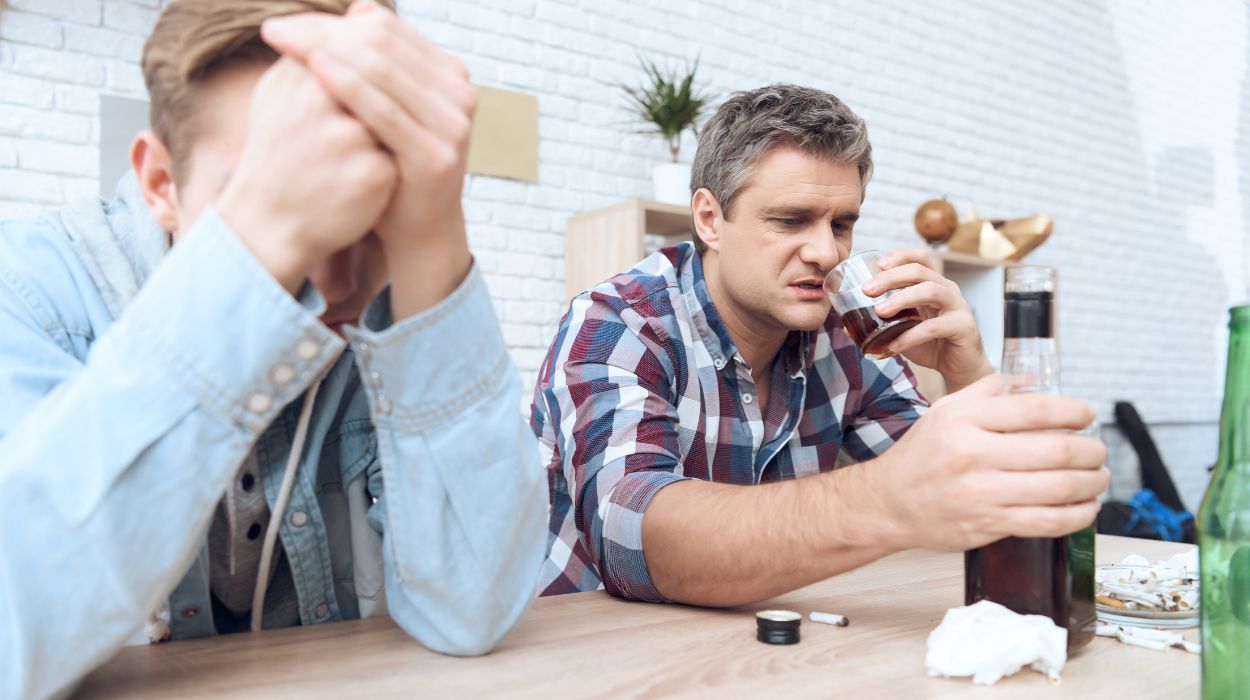
As addiction grows stronger, the person starts lying to their partner and their family to cover their dependency. From erratic behavior patterns to discrepancies in finances and sudden disappearances, the signs of drug addiction become apparent. The addict hurriedly tries to cover them up with lies. To a partner, it can feel like a never-ending string of untruthful excuses. Seeds of distrust and discord are sown in the relationship. Once trust takes a hit, the rest can unravel pretty quickly.
The tricky part about trust issues in a relationship with an addict is that their partner or family may find it hard to believe them even when they’re trying to kick the habit in recovery. This can be a huge setback for the addict. They can use it as an excuse to fall back on their old habits. It sets a vicious cycle in motion. This is how drugs ruin relationships in a very fundamental manner.
2. Drugs ruin relationships by triggering codependency
This is another way drug abuse and addiction can take a toll on relationships; codependency creeps into the equation between two partners. But what’s a codependent partner like?
The 4 traits of a codependent person
- Control issues: Micromanaging the other’s behavior out of the conviction that the person isn’t capable of making sound life choices. Control issues are a bane to healthy relationships because the sole focus becomes one’s partner
- An inferiority complex: Struggling with low self-esteem is a classic trait of a codependent person. In extreme cases, they might even ruin the relationship with self-hatred
- Compromising own needs: Making their own needs subservient to their partner’s wants and desires for the sake of harmony in the relationship. They think, ‘someone has to compromise, might as well be me’
- An inability to let go: Staying committed to the relationship even if there is no reciprocation. Codependent partners are excessively loyal
If you’ve ever wondered how does addiction affect daily life, look for these signs of codependency in your behavior. Addiction doesn’t just change the personality of the addict, but also of those close to them. As these codependent tendencies become stronger, you begin to need the addict in your life as much as they need you. See how drug addiction affects relationships?
Playing the martyr becomes your ‘addiction’ of sorts. When this begins to happen, you’re already too deep into the mess that is substance abuse and relationships. You need to take a step back and allow some space in the relationship so that you can break free from this compelling need to care for the addict in your life and they can get the right help they need to bounce back.
Related Reading: Living With An Alcoholic What You Should And Should Not Do!
3. Enabling behavior worsens drug addiction
Nothing brings out drugs and their devastating effects on relationships better than a partner inadvertently enabling an addict’s behavior. This tendency is a common sign of codependent relationships.
Enabling behavior essentially means that a partner or loved one is encouraging an addict to continue using drugs, most of the time unknowingly. A person becomes so overwhelmed with the idea of dealing with addiction in their relationship that they resort to behavior patterns that encourage their partner to continue using.
Common examples of enabling behavior – How drug addiction affects relationships
- Denial: Outright denying that your partner has an addiction problem and making excuses for their drug use
- Secrecy: Hiding their drug problem from the world and not seeking help due to concerns about reputation
- Avoidance: Not addressing this key issue in the relationship for the sake of keeping the peace. It also entails not acknowledging own feelings of emotional distress due to the drug problem
- False optimism: Putting up with an addict in the hope that things will improve on their own
- Micromanaging: Controlling the addicted partner’s life because you think they’re incapable of making sound decisions
Drug addiction can turn relationships into a deep mess, where it is difficult to ascertain who is the victim and who the culprit. If you’re in such a relationship, the best course of action always is to seek professional help. While the addict focuses on being clean, their partner must work on their mental well-being.
Related Reading: I Want To Divorce My Alcoholic, Womanising Husband
4. Physical and emotional abuse – Drug addiction in relationships at its worst
How does drug addiction affect a person, family, and society? The answer to this question can be found in the violent tendencies exhibited by addicts. When drug addiction affects relationships, the risk of anger and violence becoming constant concerns is very real. A study reveals that in the US one woman is beaten every 30 seconds, and in nearly half the cases, the perpetrators are addicts.
A person with a substance abuse problem is likely to experience high degrees of frustration when their partners try to intervene or pressure them into seeking help. When addiction ruins a marriage, violence is a key factor involved.
This can lead to aggression, which may take dangerous overtones. Additionally, certain substances such as alcohol, cocaine, crystal meth, MDMA, prescription drugs such as Ritalin and steroids, are known to fuel anger and violent tendencies in users. If you’re suffering from domestic violence or physical abuse in your relationship with an addict, know that you can seek help by reaching out to the authorities or a loved one.
5. Drug addiction is linked to sexual dissatisfaction
A study carried out in 2013 established a direct link between drug use and sexual dysfunction, owing to factors such as impotency, decreased libido, and erectile dysfunction. Besides, addiction to drugs can adversely impact fertility in both men and women.
Drug addiction can push people into isolation, rendering them incapable of engaging in healthy intimate relationships. In a relationship already marred with lack of trust, codependency, and perhaps violence, the absence of sexual compatibility can be the final nail in the coffin. This can push two people further apart, making their differences irreconcilable and the relationship toxic. Drug abuse and addiction can take a toll on relationships in ways that the damage may often be too massive to contain and begins to affect both the partners on an individual level.
Long story short, it is undeniable that drug addiction affects relationships. If you or your partner struggle with substance abuse, you can seek help from the National Drug Helpline or enroll in a rehab center near you.
“Addiction doesn’t just hurt the individual; it creates a ripple effect, harming everyone they love.”
How To Support Someone With An Addiction
Loving an addict is challenging on many levels. Supporting them is a Herculean task because they keep slipping back into the same patterns. There’s not much congruity in their promises and actions – how can you help someone who doesn’t want to help themselves? Your exasperation is completely valid as you struggle with their addiction. To help you cope, here are 4 ways of supporting someone with an addiction.
Change does not occur overnight. The journey of recovery is long and demands patience and perseverance. You can contribute to your partner’s efforts by taking these steps consistently. As Robert Collier wisely said, “Success is the sum of small efforts, repeated day in and day out.”
1. How to deal with drug addiction in relationships? Open communication
Addicts fail to realize the effects of their actions on others. The interconnectedness of your lives might be lost on them. Honest and open communication is the best way of educating them about the consequences of their actions. A lack of communication will only make things worse.
Explain how drugs ruin relationships, and how their behavior directly impacts you. This is a conversation that must be had with a lot of empathy and calmness. Don’t let it escalate into an argument or a shouting match. Exercise reason every step of the way. Dealing with addiction and relationships is hard, but have complete faith. You can do it.
2. Empathy and kindness
You cannot make your partner quit drugs by shaming or criticizing them. Giving threats, putting them down, resorting to screaming, etc., are all futile activities. Handle the situation with compassion and kindness. Each individual is a product of their experiences; be cognizant of your partner’s past when you deal with their addiction.
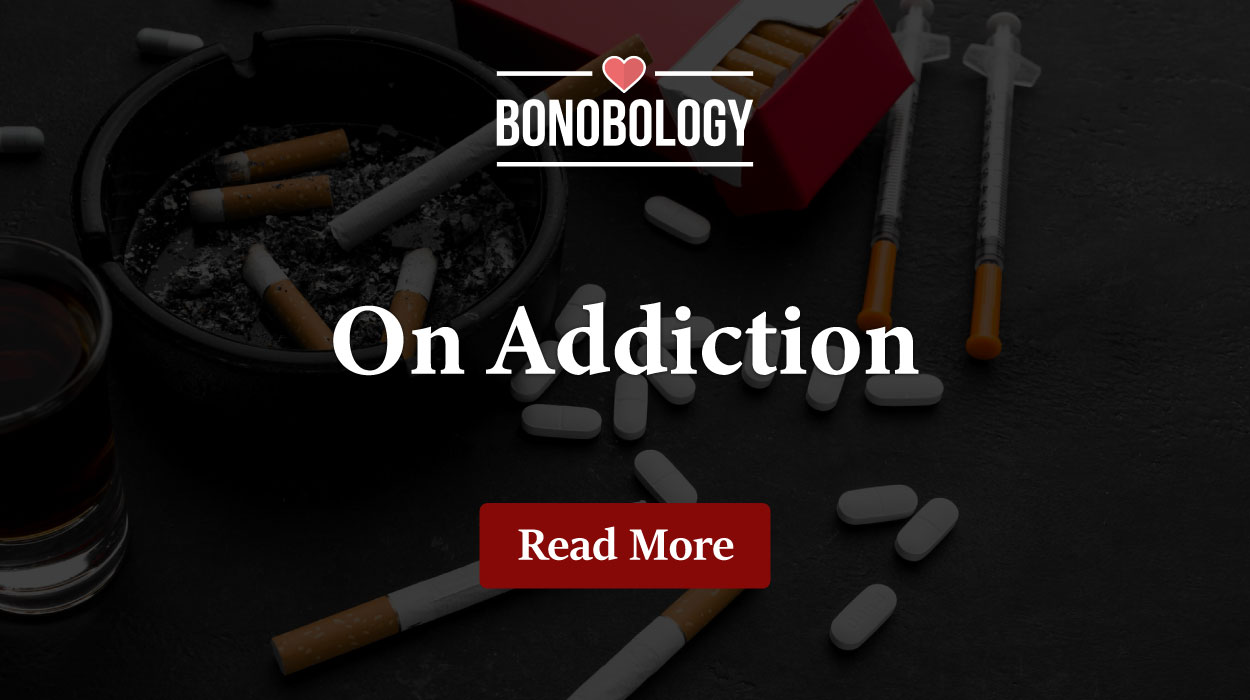
3. Patience is vital – What to do when addiction ruins a marriage?
As stated before, any attempts to speed things up are fruitless. Recovering from an addiction is not a linear process. Many a time, people take one step forward and three steps back. Expect these setbacks in your partner’s journey too. They will also have bad days where their old habits will overpower their will. Be composed and collected through this rough patch in your relationship.
4. Seek professional help
Therapy, medication, support groups, rehabilitation centers, and so on are excellent ways to help your partner get better. Reaching out to a counselor for individual or relationship guidance can help you analyze the situation better. Similarly, cognitive behavioral therapy has been recommended for addicts. Approaching a mental health professional is a good course of action because addicts often suffer from depression and anxiety too.
These are just 4 broad areas that you can explore deeper while grappling with drug addiction in relationships. It takes a while for one treatment to click. Investigate various avenues and feel free to experiment with modes of healing. Eventually, your partner will get comfortable with one thing or the other.
Be sure to look after yourself while supporting your partner. Your health should not take a backseat because of their addiction. With some hard work and time, you both will emerge stronger and better. Don’t lose hope in your significant other. Drug addiction in relationships is supremely difficult to deal with, but as they say, there’s nothing love can’t overcome.
FAQs
1. Can a relationship survive drug addiction?
Yes, relationships can survive drug addiction, but it requires significant effort and commitment from both partners. Professional help, such as therapy and support groups, can be crucial in navigating the challenges and rebuilding trust.
2. How can I support a loved one struggling with addiction?
Educate yourself about addiction, express your concern and love, encourage them to seek help, set healthy boundaries, and prioritize your well-being.
3. What are some signs that my partner’s drug use is affecting our relationship?
Signs may include increased secrecy, financial problems, emotional distance, broken promises, changes in behavior, and neglect of responsibilities.
Final Thoughts
Drug addiction casts a long and destructive shadow over relationships, often leaving them fractured and strained. The insidious nature of addiction erodes trust, communication, and intimacy, creating a chasm between loved ones. The emotional and financial toll can be devastating, leaving families feeling helpless and overwhelmed.
However, it’s important to remember that there is hope. With professional help and unwavering support, individuals struggling with addiction can reclaim their lives and rebuild their relationships. By prioritizing open communication, empathy, and understanding, families can navigate the difficult journey of recovery together and emerge stronger on the other side. “Your mental health matters. Don’t hesitate to reach out for support. Our experienced counselors are ready to listen and help you navigate life’s challenges.
Lack Of Affection And Intimacy In A Relationship — 9 Ways It Affects You
Your contribution does not constitute a charitable donation. It will allow Bonobology to continue bringing you new and up-to-date information in our pursuit of helping anyone in the world to learn how to do anything.

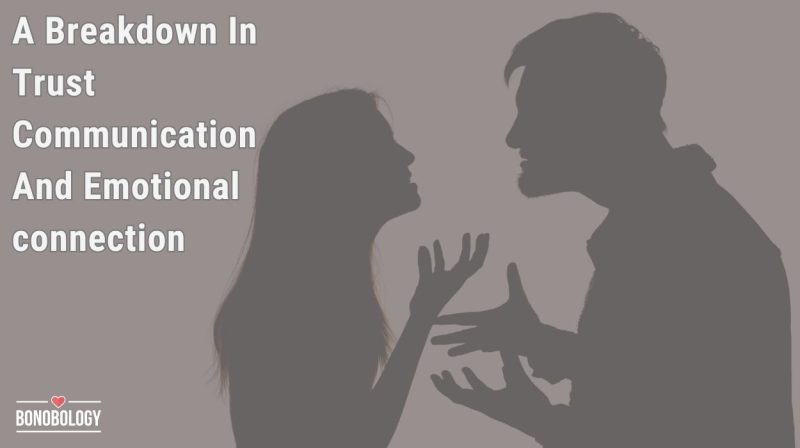

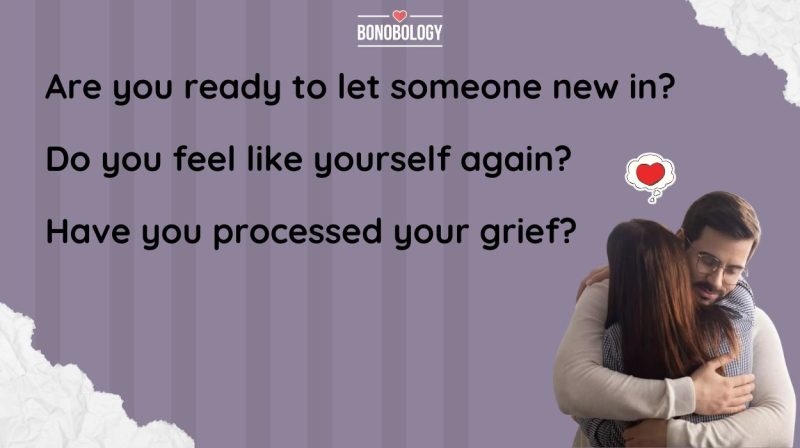
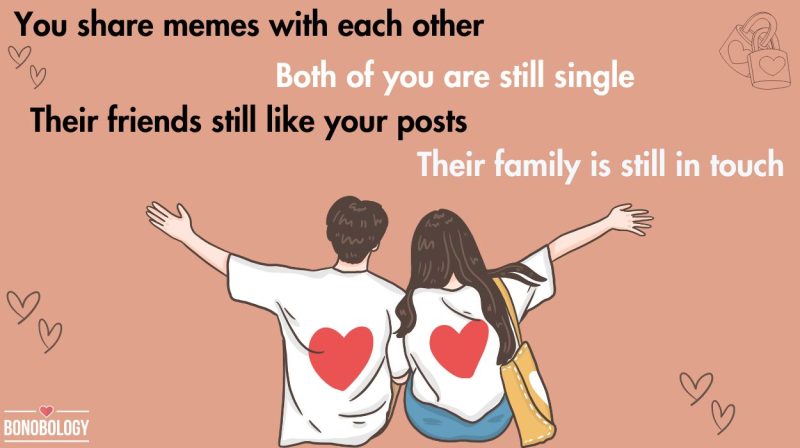














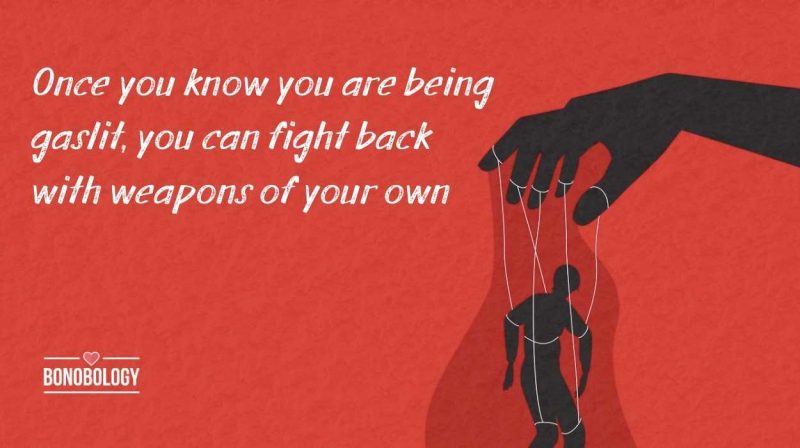
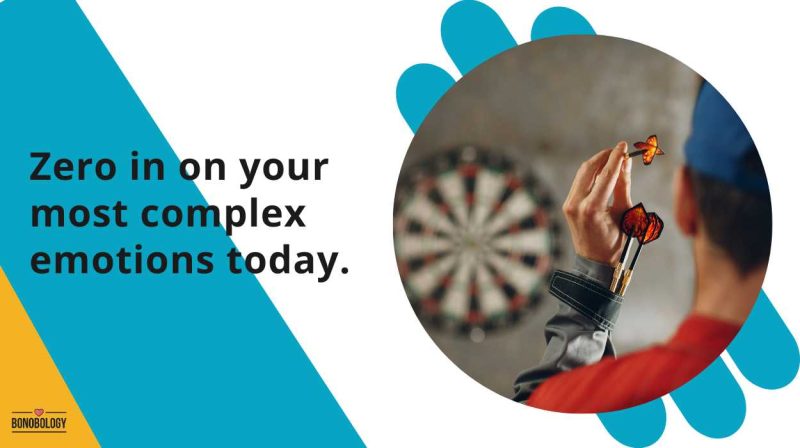
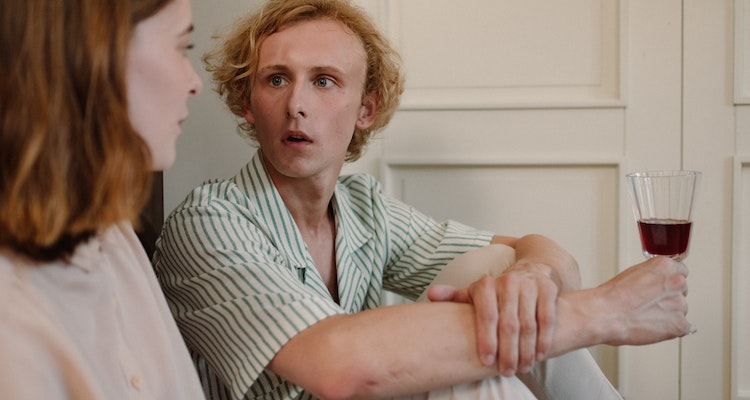

Featured
Am I Moving On Too Quickly After Death Of Spouse—How To Decide
15 Signs You’ll Get Back Together With Your Ex
How To Get Over Trust Issues — A Therapist Shares 9 Tips
Learn How To Forgive Yourself For Hurting Someone You Love
How To Find Peace After Being Cheated On — 9 Tips From A Therapist
How To Forgive A Cheating Husband: 15 Helpful Tips
35 Disturbing Signs Of Gaslighting In A Relationship
What Is Narcissistic Ghosting And How To Respond To It
‘My Husband Starts Fights And Then Blames Me’: Ways To Cope
How To Rebuild Your Life After The Death Of A Spouse: 11 Expert-Backed Tips
My Husband Died And I Want Him Back: Coping With Grief
“Am I Unlovable” – 9 Reasons You Feel This Way
11 Signs Your Girlfriend Was Sexually Abused In The Past And How To Help Her
Coping With Breakups: The Must-Have Breakup Apps For Your Phone
15 Signs You Are Wasting Your Time Trying To Get Your Ex Back
Why Are You Obsessed With Someone You Barely Know — 10 Possible Reasons
33 Phrases To Shut Down Gaslighting And Silence Gaslighters
The Emotion Wheel: What It Is And How To Use It To Build Better Relationships
The Role Of Supportive Relationships In Addiction Recovery
7 Signs You Have A Verbally Abusive Wife And 6 Things You Can Do About It